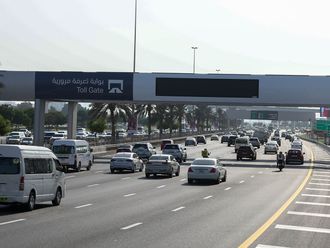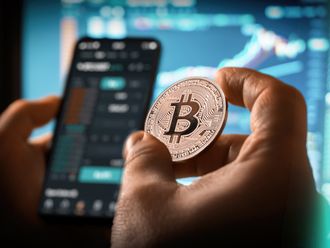New York: The euro on Friday rose to its highest in more than two months against the dollar in a rally that could be sustained in the near term, boosted by general optimism about the Eurozone crisis and last week's round of cheap money from the European Central Bank.
The euro, rising for a third straight day, broke above the key 100-day moving average against the dollar for a second consecutive session. It also breached key resistance around $1.3435, the 50 per cent retracement of the decline from the late October peak to the mid-January trough.
The yen, meanwhile, tumbled across the board, a downtrend that started with the Bank of Japan's recent monetary easing. Japan's trade deficit, widening interest rate differentials with the United States favouring the dollar and rising crude oil prices also have hurt the yen's prospects.
Against the euro, the yen fell to its lowest in nearly four months.
"I see this euro rally being sustained possibly to $1.36-$1.37 [this week]," said Douglas Borthwick, managing director at Faros Trading. He cited the improvement in the euro swaps market, which has started to show an easing of funding strains in Europe from December's extreme levels.
The cross-currency basis swap, or the relative premium for swapping euro Libor for dollar Libor, traded at -58.250 basis points on two-year contracts on Friday, off record peaks of -92.500 in mid-December.
Narrower spreads reflect reduced demand for US dollars in the currency forward market and often supports the euro's spot value against the dollar.
Refinancing operation
Borthwick added that the ECB's three-year long-term refinancing operation (LTRO) this week could help the euro's cause. Estimates suggest that the LTRO would draw bids of anywhere between €500 billion-€1 trillion (Dh2.47 trillion-Dh4.95 trillion), setting risk appetite on fire.
"A big take-up [of the LTRO] will support risk broadly, as easier bank and sovereign funding conditions reduce systemic risk globally," said Calvin Tse, currency strategist at Morgan Stanley.
He added that this a significant amount of this cash may be used to fund sovereign carry trades, in which Eurozone banks use their new three-year funding to buy debt of the region's sovereigns.
But that supply of low-interest cash could end soon. ECB Governing Council member Nowotny on Friday said he doesn't see any need for more LTRO after this week's operation.
On Friday, the euro was last up 0.7 per cent on the day at $1.34545, off an earlier peak of $1.34869, its highest since early December. Market players said the euro rally had good momentum after it broke through the 100-day moving average around $1.3306 on Thursday, and took out a reported option barrier at $1.34 in early European trade on Friday.
The next key level to watch out for will be the $1.3623 area, which is the 61.8 per cent retracement of the late October to January drop.
The Eurozone will also be the focus of the G20 meeting in Mexico City. European Union leaders are likely to seek a significant increase in resources available to the International Monetary Fund to help the region fight the debt crisis.
Some market participants believe this euro uptrend still has momentum because of the tremendous amount of euro short positioning among speculators.
"Ultimately, the fact that investors are still so short the euro is positive because, at some point, assuming the rally continues, they will need to unwind these positions which should further support the euro," said Nikolaos Panigirtzoglou, European head of global asset allocation and alternative investments at JP Morgan.












